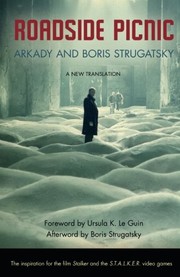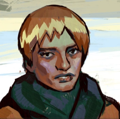frankendeer ha recensito Roadside Picnic di Борис Натанович Стругацкий
Very good
4 stelle
An enjoyable read, kinda nihilistic book but I'd say it's a positive nihilism that I can get behind. Bunch of weird sci-fi ideas that were really intriguing and it differs a lot from the movie (Stalker) and the games (S.T.A.L.K.E.R.) which was good even though the three are a real triangle of greatness. Recommend for those who like aliens, alcoholics, body horror, and futility.
An enjoyable read, kinda nihilistic book but I'd say it's a positive nihilism that I can get behind. Bunch of weird sci-fi ideas that were really intriguing and it differs a lot from the movie (Stalker) and the games (S.T.A.L.K.E.R.) which was good even though the three are a real triangle of greatness. Recommend for those who like aliens, alcoholics, body horror, and futility.



